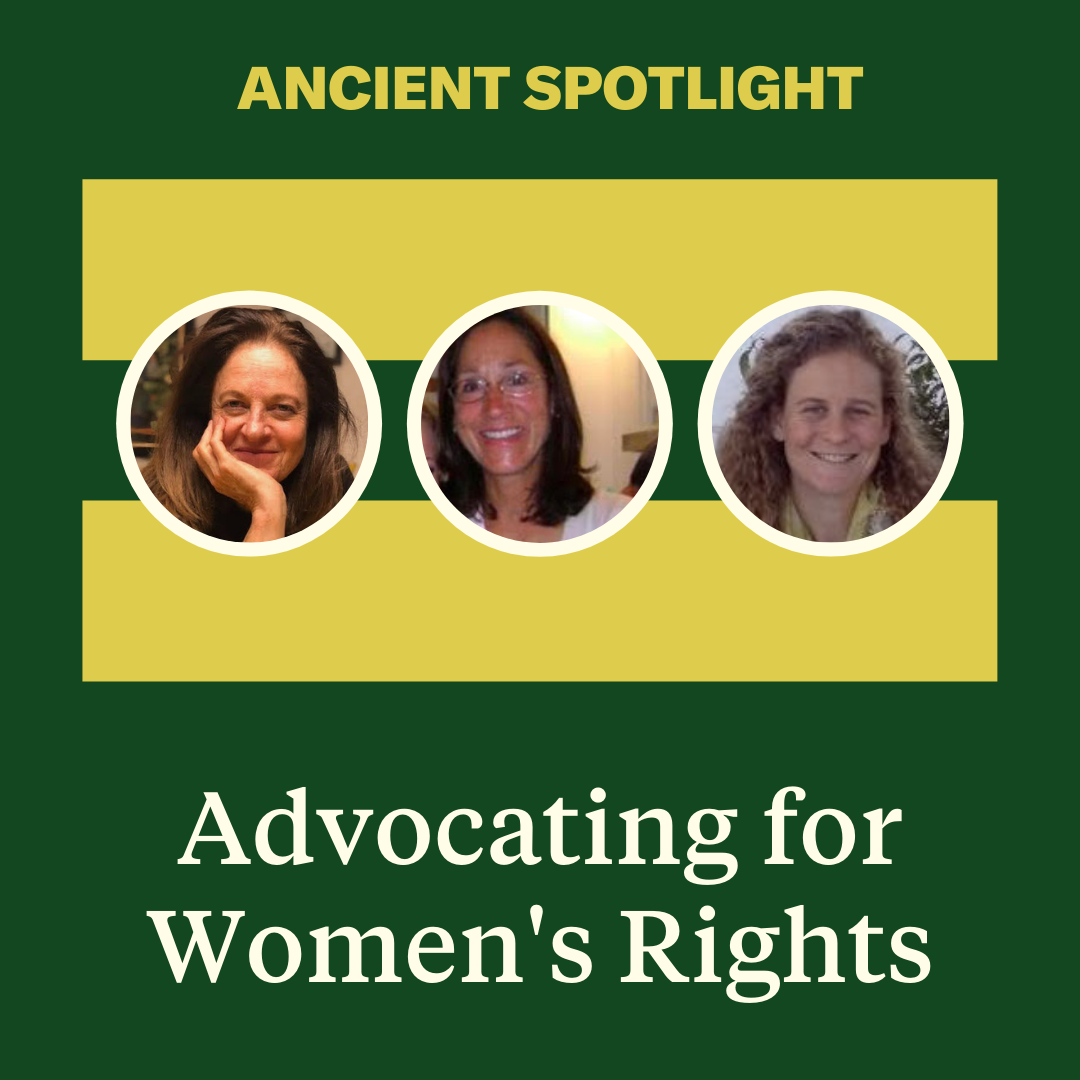Ancients across the globe work each day to support the rights of women. Inspired by the Women’s March, we are spotlighting three Ancients who are deeply committed to the work of women’s advocacy.
The Women’s March is a worldwide protest that began on January 21, 2017. Since its inception, the Women’s March has fought for the rights of marginalized communities through an intersectional platform known as the Unity Principles. Based upon the belief that Women’s Rights are Human Rights and Human Rights are Women’s Rights, the Women’s March is guided by a vision of collective liberation.
With a mission to harness the political power of diverse women and their communities to create transformative social change, the Women’s March is planning a nationwide day of rallies in all 50 states in support of reproductive rights. Marches are scheduled for Saturday, October 2, two days before the Supreme Court reconvenes for its new term.



“Unless the rights of the most marginalized women and girls are protected, nobody’s rights are protected and inequality only increases across the board.”
Christina Alexander ’97
Christina Alexander ’97, Senior Knowledge Management and Evaluation Officer at IPPF/WHR
Christina works with local partners in Latin America and the Caribbean to understand how to measure and communicate the results and impact of their advocacy work in abortion, even in contexts where increasing abortion access for women and girls seems like an impossible feat at this moment in history.
One of the biggest lessons she has learned in her work is that advocacy is not just about convincing leaders to change or maintain laws, but about activating a critical mass of support for an issue, through education, communications and movement building. This is referred to as the “social decriminalization” of abortion.
One key to success in advocacy is strategic coordination with diverse but connected professions and social movements committed to human rights, to build a groundswell of support for abortion rights from a variety of perspectives. For example, Christina’s partners work with disability rights organizations, children’s rights groups and even climate justice NGOs to build the case for women’s and girls’ rights, and specifically their right to safe and legal abortion, from a variety of perspectives.
Also fundamental in abortion and any human rights advocacy work is the inclusion of the voices and stories of those most affected by restrictive abortion laws as part of the case for safe and legal abortion around the world. Women who have been denied access to an abortion and have suffered consequences because of that have important stories to tell, and it is important that they are told and heard.
“For those who haven’t found their voices, there are women speaking for you every day until you do.”
Jennifer Goff Goodspeed ’71
Jennifer Goff Goodspeed ’71, Independent Philanthropy Professional
Jennifer began volunteering in various local organizations as a young adult and eventually served on the board of Planned Parenthood of Northern New England for many years, in addition to running a private foundation that focuses on women’s rights and reproductive justice.
Though she hadn’t made a conscious decision to be an advocate for women, Jennifer had always been aware that life, from sports fields to accessing reproductive health care, was not at all the same for women as it was for men. Understanding the depth of the injustice was a huge motivator for Jennifer to make her voice heard.
The more she talked, (and listened), wrote letters, showed up, and voted, the more deeply she understood that her voice matters and her voice makes a difference. It’s a powerful feeling and one that she wishes every woman could experience.
“Men and women share lives; to be on the same page, we must also share rights.”
Dr. Susan E. Pick ’70
Dr. Susan E. Pick ’70, Founder and President of the Mexican Institute for Family and Population Research (IMIFAP)
The Mexican Institute for Family and Population Research – Yo quiero, yo puedo (“I want to, I can”), is a Mexican NGO that has benefitted over 20 million people in 17 countries to become agents of change in their lives and communities.
Dr. Pick developed revolutionary Framework for Enabling Empowerment (FrEE) which emphasizes the importance of personal agency in academic performance, participatory citizenship, health promotion, poverty reduction, and sustainable community development.
Her work has been featured in television, radio, print and web media in Mexico, Venezuela, Colombia, and the United States. She has also authored more than 500 publications (including scientific articles, children’s books, training manuals, and text books).
Consider using your voice to make a difference. Suggested guidelines can be found through Reclaim Our Vote or Vote Forward. Please also refer to Vote.org, an organization run by Andrea Hailey ’99, and be sure to complete the 2020 US Census and be counted.
Are you an Ancient advocate for women’s rights? We want to hear about your work! Share your story with us at alumnaerelations@missporters.org.

